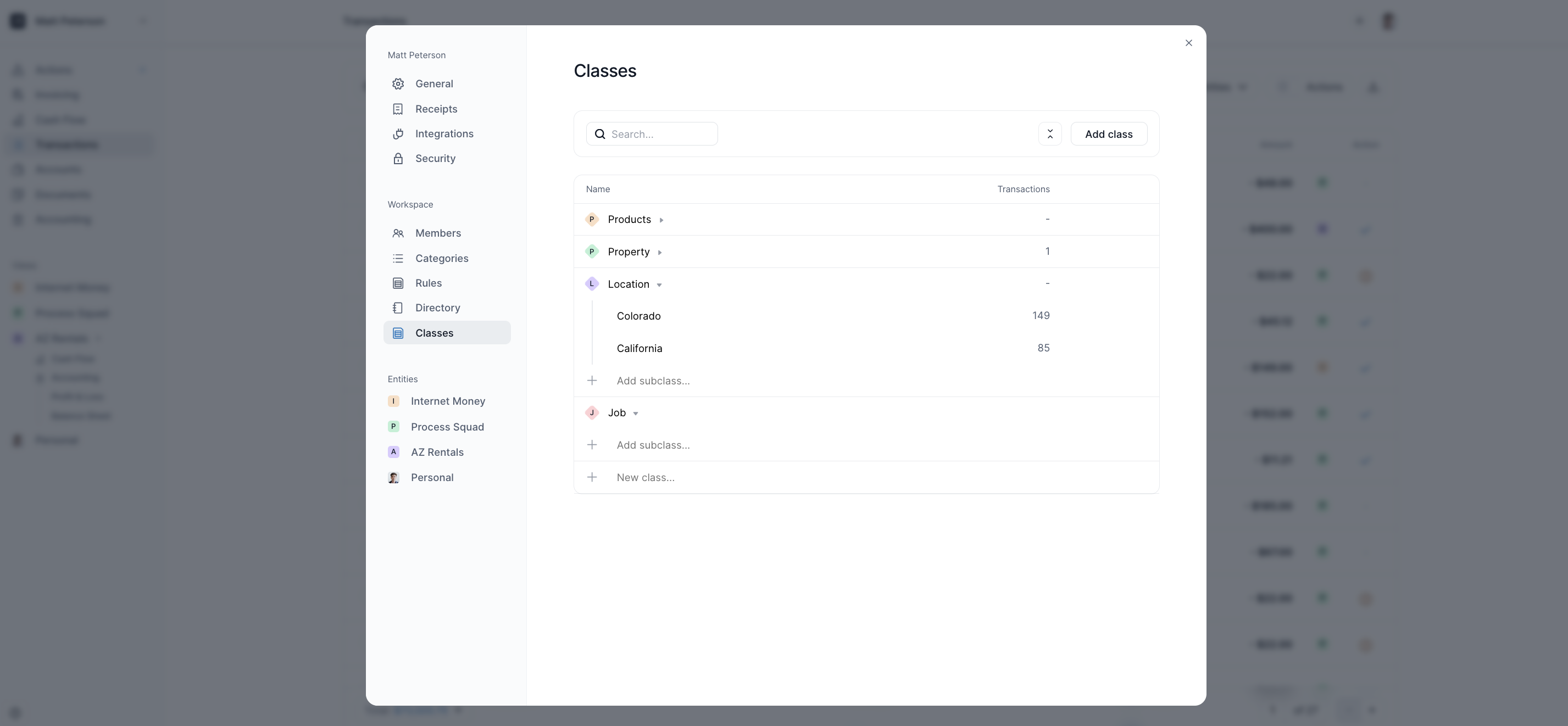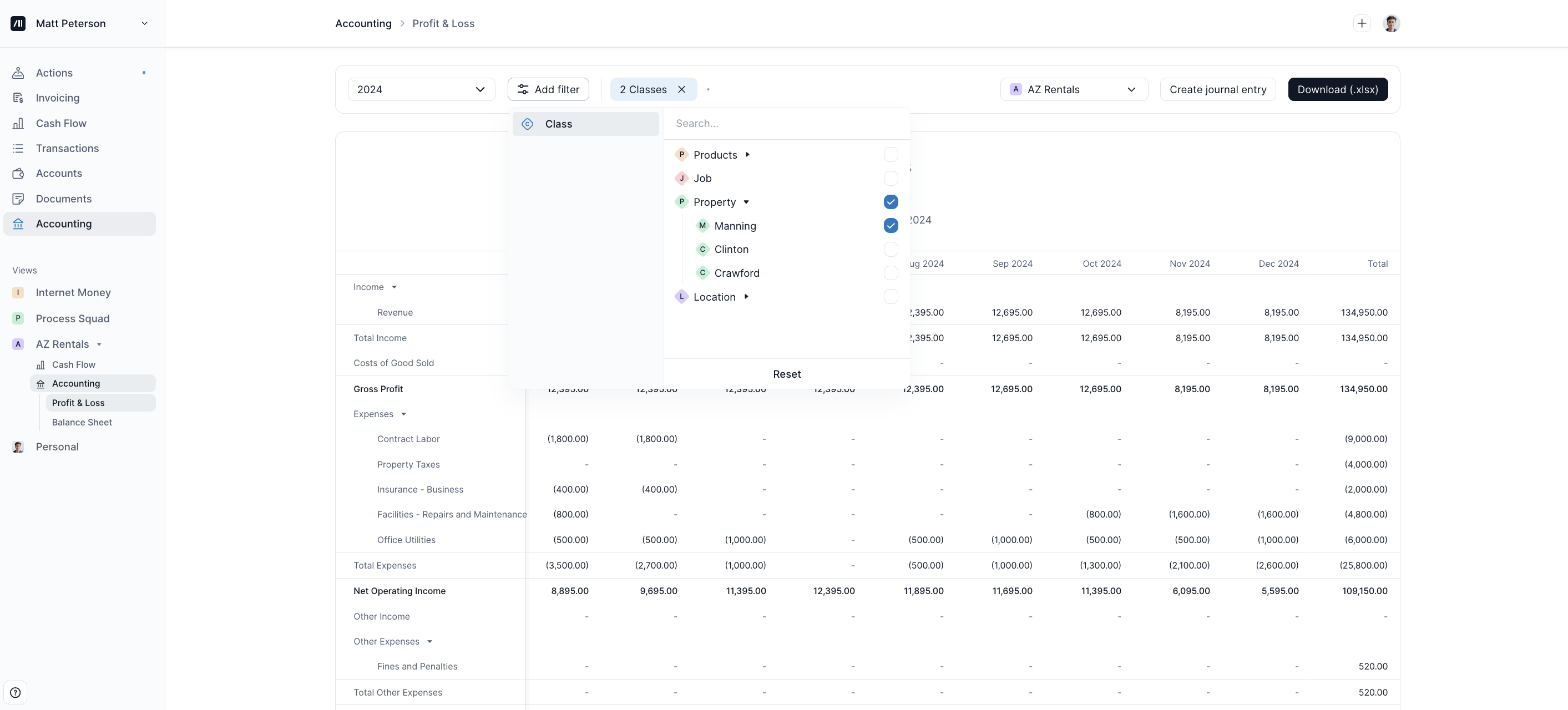Classes & Subclasses
The Classes & Subclasses feature allows you to organize transactions beyond standard categorization by grouping them under projects, locations, revenue streams, or clients - similar to using tags for easier tracking and reporting.
What Are Classes?
Classes act as custom labels for transactions, helping you categorize income and expenses beyond standard account categories.
For example, a marketing agency might categorize an expense as "Advertising", but with Classes, they can assign it to a specific client, such as "Sherman Account – Social Media Campaign."
Similarly, a business with multiple locations might categorize rent under "Rent" while assigning a class like "New York Office – Main Headquarters." This helps track financial performance across different areas of your business and provides more detailed reporting insights.
Use Cases for Classes & Subclasses
Projects → Phases (e.g., Website Redesign → Design, Development, Launch).
Clients → Specific Engagements (e.g., Client A → Monthly Retainer, One-Time Project).
Locations → Store Branches (e.g., California → Los Angeles, San Diego).
Departments → Teams (e.g., Marketing → Social Media, Sales → Inside Sales).
Properties → Real Estate Holdings (e.g., Oak Street, Cove Way, Elm Drive).
Other Income Streams (and Expenses) → (e.g., Example Business, Example Business 2)
Classes create a top-level category, while Subclasses provide a more detailed breakdown within that category.
How to Manage Classes & Subclasses in Kick

Navigate to Classes
Click the dropdown arrow beside Transactions (from the left sidebar) → Classes
Create a Class or Subclass
Add a new class directly in the table or via the “Add Class” button.
Create subclasses directly in the table underneath it’s respective parent Class.
Modify Classes
Reorder Classes by simply dragging each class. You can also easily drag subclasses to a different parent Class.
How to Filter Data and Reports by Class & Subclass
In Kick, you’re able to filter the Profit & Loss, Balance Sheet and Cash Flow by Class and Subclass.
Go to Reports and select a financial report (e.g., Profit & Loss) or visit the Cash Flow tab.
Use the Class & Subclass filter to analyze financial data at both high and granular levels.
